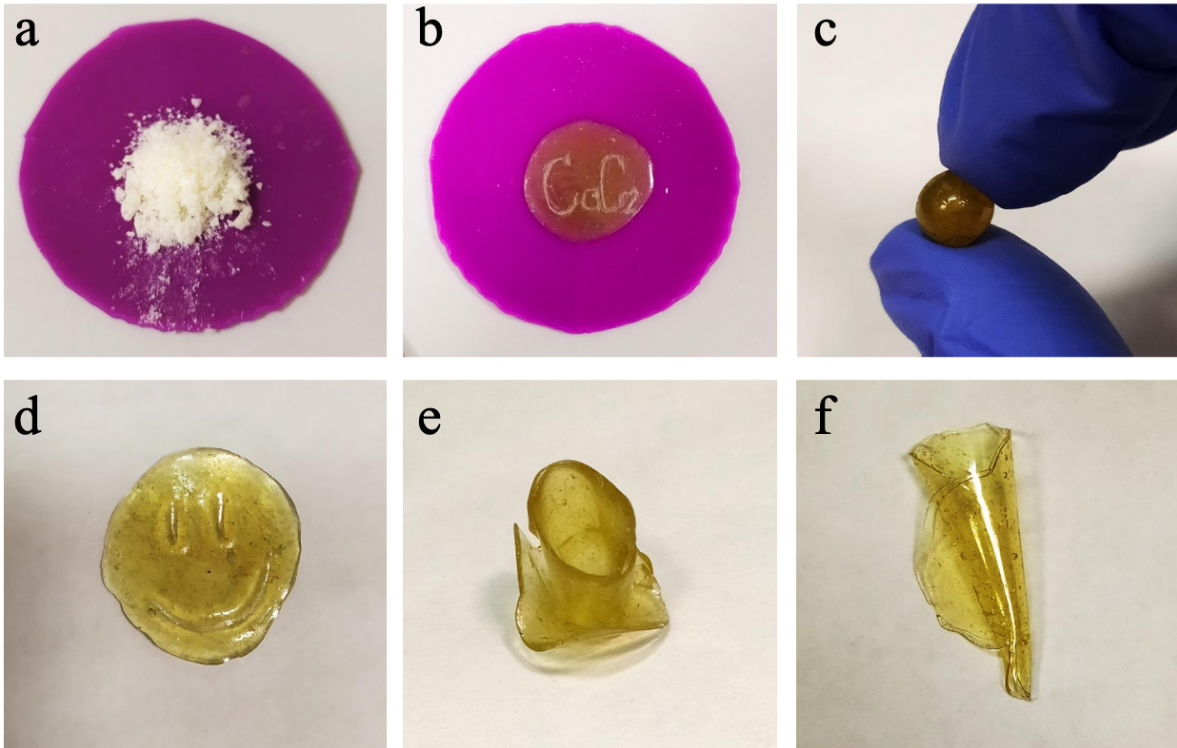Apr 13 2021
At the Laboratory of Cluster Catalysis at St Petersburg University, scientists have produced polymers from biomass. The new polymers are different from others in that they can be recycled in a simple way. The study has been published in the Green Chemistry journal.
 Mechanical treatment of mitranol-based polymers: (а) primary polymer as white powder; (b) melted polymer, (c-f) various forms of the polymer after being melted repeatedly. Image Credit: St Petersburg University.
Mechanical treatment of mitranol-based polymers: (а) primary polymer as white powder; (b) melted polymer, (c-f) various forms of the polymer after being melted repeatedly. Image Credit: St Petersburg University.
At present, human life without polymers is just unimaginable. Films, plastics, paint, fibers and lacquer coating come under different categories of polymers. People make use of them both in daily life and in industry.
However, the goods created from polymers, for example, bags, bottles, or disposable tableware, are still utilized only once or for a short term before they are discarded. As polymers can release various chemical compounds when they are recycled, they pose a real risk to the environment.
Certain polymers can be recycled multiple times. This kindles the interest of researchers in secondary recycling. But the goods created from secondary raw materials exhibit lower quality when compared to those made from primary raw materials.
The newly developed polymers are dependent on biomass compounds. In the future, biomass would be a renewable source of raw materials for the chemical industry. The main component of such polymers is terpenols—compounds derived from natural alcohols.
Menthol obtained from the essential oil in mint and borneol abundantly found in the essential oil from the white fir tree are some well-known examples of terpenols.
The produced polymers could be subjected to primary and secondary recycling. At the time of secondary recycling, the polymer-based products can be transformed into the main compounds. This might then be followed by polymerization. Such polymers can be recycled at moderate temperatures.
This can be said about recycling the materials based on our polymers. If they are recycled without oxygen, we can get natural alcohols or their derivatives that can be restored to the same alcohols. Because they are widely found in nature, they do not harm the environment.
Svetlana Metlyaeva, Study First Author and Researcher, Laboratory of Cluster Catalysis, St Petersburg University
Metlyaeva added that polymers of this kind can be melted at around 120°C and molded differently. They turn hard upon cooling. Fascinatingly, the chemists repeated this cycle seven times and came to a conclusion that there was no change in the properties of the polymers when they were melted more than once.
The team is looking to continue their study at the Research Park at St Petersburg University. They will investigate the polymers’ mechanical properties, such as strength, elasticity, resilience, and others. This is a key step toward gaining better insights into ways they can be used in industry.
What we have achieved so far is only the ability to synthesise these polymers. Yet the properties of the polymer-based materials can vary. This depends on the way in which we synthesise them and what compounds we use. Now we have to modify the polymers themselves and the materials based on them. Then we will be able to talk about how we can use them.
Svetlana Metlyaeva, Study First Author and Researcher, Laboratory of Cluster Catalysis, St Petersburg University
The study is financially supported by an internal grant from St Petersburg University.
Journal Reference:
Metlyaeva, S. A., et al. (2021) Biomass- and calcium carbide-based recyclable polymers. Green Chemistry. doi.org/10.1039/D0GC04170J.